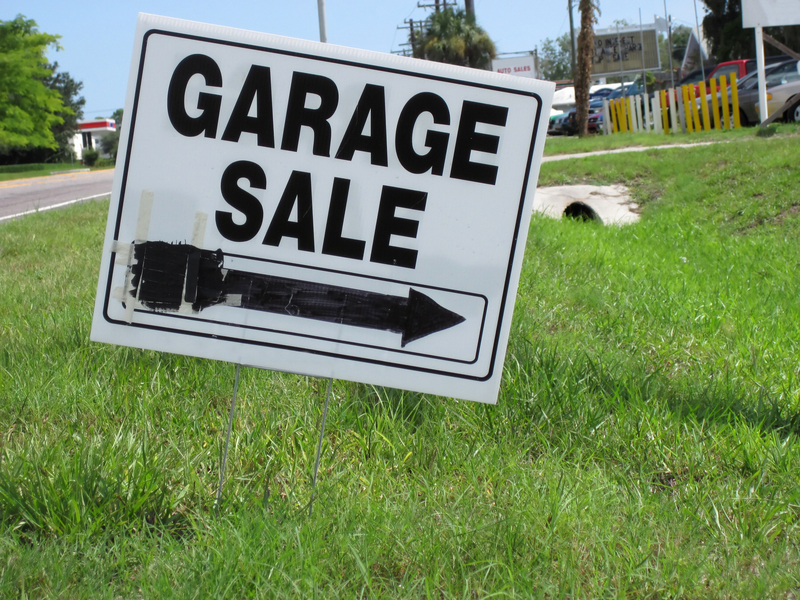Join the Movement: Minimize Your Plastic Waste
Every year, millions of tons of plastic pollute our oceans, threaten wildlife, and harm our health. Plastic pollution is an urgent global challenge, but the good news is that each of us can make a significant impact by making conscious choices in our daily lives. Are you ready to join the movement and minimize your plastic waste? In this comprehensive guide, you'll learn why reducing plastic waste matters, how it begins at home, and practical steps to lead a more sustainable, zero-waste lifestyle.

Why Is It Crucial to Minimize Your Plastic Waste?
Plastics are everywhere: from packaging, bottles, and bags to our clothes and personal care products. Most plastics are designed to be used just once and then discarded. Since plastic doesn't biodegrade--only breaking down into toxic microplastics--its impact lingers for centuries. Here are a few critical reasons to reduce plastic waste as much as possible:
- Protecting Wildlife: Marine animals and birds often mistake plastic debris for food, leading to injury, starvation, or death.
- Preventing Pollution: Plastic litter clogs waterways, contributes to flooding, and leaches harmful chemicals into soil and water.
- Safeguarding Health: Microplastics have been found in drinking water and food, raising concerns about their impact on human health.
- Saving Resources: Reducing plastic usage conserves the fossil fuels and energy required to produce new plastics.
- Combating Climate Change: Plastic production and disposal release greenhouse gases, accelerating climate change.
Understanding Plastic Pollution: The Facts
Before you can truly minimize your plastic waste, it's essential to grasp the scale of the problem. Did you know:
- Humans produce about 400 million tons of plastic waste every year.
- More than 40% of all plastic is used just once--often for packaging--and then thrown away.
- Only about 9% of plastic waste is recycled globally.
- Plastic pollution is found on every continent, from the deepest ocean trenches to remote mountain peaks.
These stark facts underscore the urgent need to reduce your plastic consumption and inspire others to take action.
Simple Steps to Minimize Plastic Waste at Home
The journey to a low-plastic or zero-waste lifestyle begins within our households. Everyone can contribute to plastic waste minimization by embracing simple changes. Here's how to start:
1. Refuse Single-Use Plastics
- Say "no" to straws, cutlery, plastic plates, and shop bags wherever possible.
- Bring your own reusable bags, bottles, and food containers to shops, markets, and takeout restaurants.
- Choose products with minimal or no plastic packaging.
2. Swap Disposables for Reusables
- Invest in stainless steel, glass, or bamboo water bottles and coffee cups.
- Switch to beeswax wraps, silicone lids, or glass containers for food storage instead of cling film or plastic bags.
- Choose cloth shopping totes and produce bags when grocery shopping.
3. Buy in Bulk Whenever Possible
- Support stores that offer bulk bins for dry goods, grains, and snacks--bring your own refillable containers.
- Prioritize buying larger sizes of essential products to minimize packaging waste.
4. Make DIY Household Items
- Experiment with making your own cleaning products using vinegar, baking soda, and essential oils--cutting out need for plastic bottles.
- Create homemade toiletries such as toothpaste, deodorant, and lotions, often using reusable jars.
5. Rethink Personal Care
- Choose bar soap instead of bottled body wash.
- Switch to shampoo bars and natural deodorants sold in compostable or recyclable packaging.
- Opt for bamboo toothbrushes and refillable razors instead of plastic alternatives.
Zero Waste Kitchen: How to Minimize Plastic Waste While Cooking
Kitchens are hotspots for single-use plastics, from food packaging to cling film and cleaning supplies. You can drastically reduce kitchen plastic with a few swaps:
- Buy fresh produce loose or in environmentally friendly mesh bags.
- Opt for refillable dispensers for dish soap and cleaners.
- Store leftovers in glass jars or stainless steel containers.
- Make your own snacks or beverages--like granola bars, nut milks, or iced tea--to avoid packaged goods.
Compost Food Scraps
Composting your kitchen waste not only reduces landfill trash but also curbs the use of plastic trash bags. It's a win-win for a more eco-friendly lifestyle!
Tips for Minimizing Plastic Waste On-the-Go
- Carry Your Essentials: Keep a zero-waste kit in your bag, including a water bottle, travel coffee mug, set of cutlery, a metal straw, and a reusable bag.
- Plan Ahead: If you know you'll be dining out or shopping, bring containers and bags to avoid accepting disposables.
- Avoid Impulse Buys: Many impulse purchases come in excess packaging. Shop mindfully and stick to your shopping list.
Travel Mindfully
- Stay in eco-friendly accommodations that commit to reducing plastic waste.
- Choose tour operators or excursions that prioritize sustainable practices.
How to Influence Your Community to Minimize Plastic Waste
Your individual efforts matter--but when multiplied across communities, businesses, and cities, the impact is even greater. Here's how to spread the message:
- Lead by Example: Adopt low-plastic habits and inspire curiosity among friends, family, and colleagues.
- Organize or Join Cleanups: Participate in local beach, park, or neighborhood cleanups to raise awareness about litter and pollution.
- Educate Others: Share what you've learned about minimizing plastic waste through workshops, social media, or community events.
- Support Legislation: Advocate for policies and bans on single-use plastics with your local government.
- Encourage Local Businesses: Request that shops, cafes, and restaurants offer sustainable alternatives to plastic packaging and utensils.
Alternatives to Common Single-Use Plastics
Transitioning to a lifestyle that minimizes plastic waste is easier when you know the eco-friendly alternatives available. Consider making the switch:
- Plastic Water Bottles > Reusable stainless steel or glass bottles
- Plastic Shopping Bags > Sturdy cloth, jute, or hemp tote bags
- Plastic Cling Film > Beeswax wraps, silicone lids, glass containers
- Disposable Cutlery > Stainless steel, bamboo, or compostable cutlery
- Toothbrushes > Bamboo or natural fiber toothbrushes
- Shampoo Bottles > Shampoo bars or bulk refill stations
- Plastic Glitter > Biodegradable, plant-based glitter
Inspiring Global Movements to Reduce Plastic Waste
From zero-waste pioneers to global initiatives, the push to reduce plastic waste is gaining momentum worldwide. Here are some notable movements you can join or support:
- Plastic Free July: Millions worldwide participate by avoiding single-use plastics for one month each year.
- Zero Waste Home Movement: Championing minimalism and sustainable living, families share tips on reducing all forms of waste, not just plastics.
- Break Free From Plastic: An international movement that unites NGOs, businesses, and individuals to combat plastic pollution.
- Ocean Cleanup Organizations: Volunteer or donate to groups leading large-scale efforts to remove plastic from waterways and shorelines.
Frequently Asked Questions About Minimizing Plastic Waste
Is Recycling Enough?
Unfortunately, recycling alone isn't the answer--only a small fraction of plastics are actually recycled. Prioritizing deeper lifestyle shifts such as reducing and reusing plastics is more effective.
Do Biodegradable Plastics Solve the Problem?
While some biodegradable or compostable plastics break down faster, they often require industrial composting and may not degrade naturally in the environment. Always seek truly compostable and natural alternatives when minimizing plastic waste.
How Can I Find Zero Waste Shops or Bulk Stores?
Search online for local "zero waste shops," "bulk stores," or "refill stations," and support small businesses committed to limiting plastic waste in your area.

Final Thoughts: Every Step Counts
The journey to minimize plastic waste takes commitment and creativity, but every small action compounds. Think of it as an ongoing process: start with a few changes, celebrate your progress, and keep learning. When you join the movement to minimize your plastic waste, you're not just helping the planet--you're also setting a powerful example for those around you.
- Refuse what you don't need.
- Reduce what you do need.
- Reuse everything you can.
- Recycle as a last resort.
By making conscious choices every day, spreading awareness, and embracing a more mindful approach to consumption, you can help turn the tide on plastic pollution. Let's join hands and move towards a cleaner, greener, and more sustainable world--one plastic-free step at a time!
Share Your Plastic Waste Minimization Journey
What swaps have worked best for you on your plastic reduction journey? Share your favorite tips or inspiring stories in the comments and help inspire others to reduce plastic waste in their own lives!